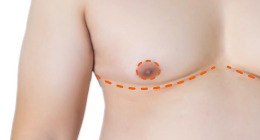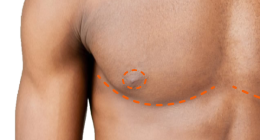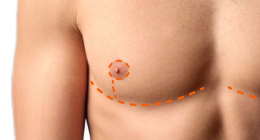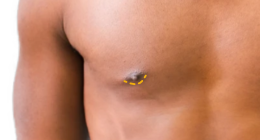Top Surgery Risks and Complications
 Top
Surgery is a gender-affirming procedure that
can significantly improve a person's quality
of life. However, like any surgical procedure,
it carries potential risks and complications.
Top
Surgery is a gender-affirming procedure that
can significantly improve a person's quality
of life. However, like any surgical procedure,
it carries potential risks and complications.
Understanding surgery risks and complications is a crucial aspect of providing informed consent. Informed consent is the process by which a patient is made fully aware of and understands the risks, benefits, and alternatives associated with a surgery before agreeing to undergo it. It’s a fundamental principle of medical ethics and patient autonomy.
The risks associated with having surgery can range from common and minor complications to rare but serious outcomes.
- General Risks: These might include infection, bleeding, or adverse reactions to anesthesia. Most surgeries carry some level of general risk.
- Procedure-Specific Risks: Every surgery has its own specific set of risks related to the type and location of the procedure. For example, Top Surgery might involve risks related to loss of a nipple-areola graft.
- Long-Term Complications: Some surgeries can have long-term or delayed complications, such as chronic pain, loss of function, or need for further surgeries.
Common risks and complications associated with Top Surgery include:
- Bleeding: Excessive bleeding can occur during or after surgery. Some bleeding is normal, but excessive bleeding might require additional treatment.
- Infection: Infections can develop at the incision sites. Proper post-operative care and hygiene are crucial to minimize this risk.
- Poor Wound Healing: Problems such as delayed wound healing or dehiscence (wounds reopening) can occur, sometimes requiring additional medical attention.
- Hematoma: A hematoma is a collection of blood under the skin, which can cause pain and swelling.
- Seroma: This is the accumulation of fluid under the skin at the site of surgery, which may need to be drained if it becomes problematic.
- Changes in Sensation: There may be temporary or permanent changes in nipple or chest sensation. Some people experience numbness, while others may have increased sensitivity. (Related: See Post-Mastectomy Pain Syndrome, below.)
- Asymmetry: The results may not be perfectly symmetrical, and a revision surgery might be needed to address any imbalances.
- Contour Irregularities: Uneven chest contours may occur, sometimes requiring a revision surgery.
- Scarring: While scarring is a natural part of the healing process, the extent and appearance of scars can vary, and some patients may need additional treatments to manage scar formation.
- Psychological Impact: Post-op depression is common after all types of surgery. Some individuals may experience psychological challenges related to their body image or expectations post-surgery.
Less common and rare complications after Top Surgery include:
- Nipple Necrosis: In rare cases, the nipple-areola may die due to insufficient blood supply.
- Anesthesia Risks: Reactions to anesthesia, though rare, can include allergic reactions or complications related to breathing or heart function.
- Chronic Pain: Post-Mastectomy Pain Syndrome (PMPS) is a condition that can occur after a mastectomy. The exact cause of PMPS isn't fully understood, but it likely involves nerve damage or irritation sustained during surgery. PMPS can cause chronic pain and other sensory disturbances in the chest, arm, or shoulders. A persistent dull ache, stabbing or burning sensation, numbness or tingling, hypersensitivity, and restricted movement are all symptoms of PMPS. Treatment includes pain relievers, anti-inflammatory or anticonvulsant medications, as well as physical therapy and nerve blocks. PMPS can resolve but can also be permanent.
It's important to have a thorough discussion with your surgeon about these risks and how they can be managed. They can provide more specific information based on your individual circumstances and the type of Top Surgery procedure you are considering.
While there are risks and complications associated with having gender-affirming Top Surgery, it’s important to note that researchers who investigated the impact of complications found that complications do not significantly impact patient satisfaction.
Last updated: 09/13/24




